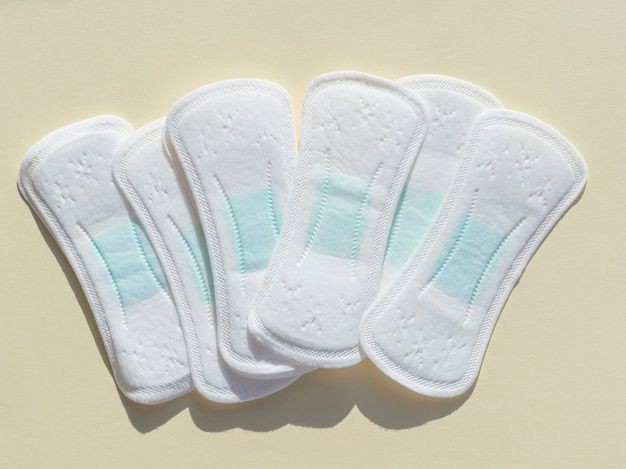Every month, Bukola Adisa weathers tortuous hours of blood and torment, which she’s described as her toughest time of the month. Bukola confronts a myriad of challenges as a young girl growing up in the quaint town of Iloffa, in Kwara State.
Since growing into puberty in 2018, Bukola has depended on cloth, which always get stained by her menstrual blood, leaving her red-faced.
“I wish I could stop menstruating, but I don’t want to be barren. Sometime ago, after noticing blood on my skirt, I borrowed my male classmate’s sweater to cover myself. I washed it when I got home, only for the guy to reject the sweater because he learned that I used it for my menstruation.
I tried all possible to make him understand what occurred. He was too furious as his friends made him see reasons to not collect the sweater. On our assembly ground in the mid-day, he called the male proprietor’s attention to this issue. I felt so embarrassed as I had to beg for his forgiveness for using his sweater to cover myself before the whole school,” recalled the 18-year-old secondary school leaver.
Given her family’s dire financial straits, Bukola has hardly been able to buy menstrual pads in the years since then. So, she uses rags from her mother’s closet during her menstruation, which are less absorbent than the regular pads.
As with almost every product, galloping inflation has taken a toll on menstrual pads, with the average cost of a menstrual pad rising to N2000 from N1300 in early 2023. A compromise in quality and quantity sparked an outcry on social media.
Period Poverty
According to Actionaid, period poverty is a global crisis affecting those who don’t have access to the safe, hygienic menstrual products they need, and/or who are unable to manage their periods with dignity, sometimes due to community stigma and sanction.
Similarly, a report by the School of Public Health at the University of Michigan defines period poverty as the prevalent phenomenon of being unable to afford products such as pads, tampons, or liners to manage menstrual bleeding. In lieu of sanitary products, many people are forced to use items like rags, paper towels, toilet paper, or cardboard. Others ration sanitary products by using them for extended periods of time. Period poverty encompasses not only this lack of access to products, but also inadequate access to toilets, handwashing receptacles, and hygienic waste management.
Of Nigeria’s 133 million people estimated to be multidimensionally poor, 37 million girls are said to experience period poverty in Nigeria.
This uptick in girls facing period poverty highlights a public health crisis. Less absorbent material, like rag, promotes poor menstrual hygiene, causing a fecund growth of infections in the vaginal area.
Odunola Olabintan, a medical specialist in sexual health, states that women are vulnerable to several diseases through bad hygienic practices owing to “the risk of bacterial and fungal infections” during menstruation.
“Different sanitary products are available for women during their periods, including menstrual pads, tampons, reusable pads, and menstrual cups,” she argues.
“Regardless of the type of product used, it’s crucial to change it every four to six hours. Leaving a pad or tampon in for longer than recommended can result in complications. The accumulation of blood can create a breeding ground for bacteria and fungi, leading to infections and unpleasant odors.”
Olabintan maintains that, while women on menstruation have multiple dresses as undergarments, the pad or another material turns the vagina area into a fertile ground for infections when it spends many hours.
“Leaving your tampon in for too long can cause toxic shock syndrome,” she said.
A rare but potentially life-threatening condition, toxic shock syndrome (TSS) is caused by certain strains of bacteria that produce poisons (toxins). These toxins flow into your bloodstream and afflict such organs as the heart, liver, or kidneys. It’s often associated with using tampons during menstruation.
Also associated with bad menstrual hygiene are infections like candidiasis and bacterial vaginosis. Although bacterial vaginosis occurs when the various kinds of healthy bacteria in your vagina get out of balance and grow too much, creating an imbalance, candidiasis occurs when there is yeast inequality.
Addressing the economic incapacity of many women to afford menstrual hygiene, Olabintan said, “Managing funds often means stretching pad usage, leading to health risks as pads aren’t changed as frequently as recommended. The inability to afford proper menstrual products exacerbates the problem, leaving many without access to even reusable pads.”
Speaking on solutions, the specialist pleaded with the Nigerian government to ensure that menstrual pads are affordable for every girl and woman. One measure she suggests is deducting taxes from the menstrual products. “In my view, menstrual products should be freely accessible to address the pressing issue of period poverty and ensure better health outcomes for all. Women are born with the ability to menstruate so why should we have to pay for things, we had no choice over. ”
Although there’s been contribution from of non-governmental organizations, this remains unsustainable. Making cheaper alternatives like reusable pads should be adopted by every woman in order to stop the use of imported pads that come with heavy taxes, according to Olabintan.
“As often as possible, ensure you change your pad every four to six hours. Additionally, make sure to shower or take a bath at least twice a day. By resting well, staying hydrated, and following these hygiene practices, you, as a menstruator, will be fine,” Olabintan advised.





